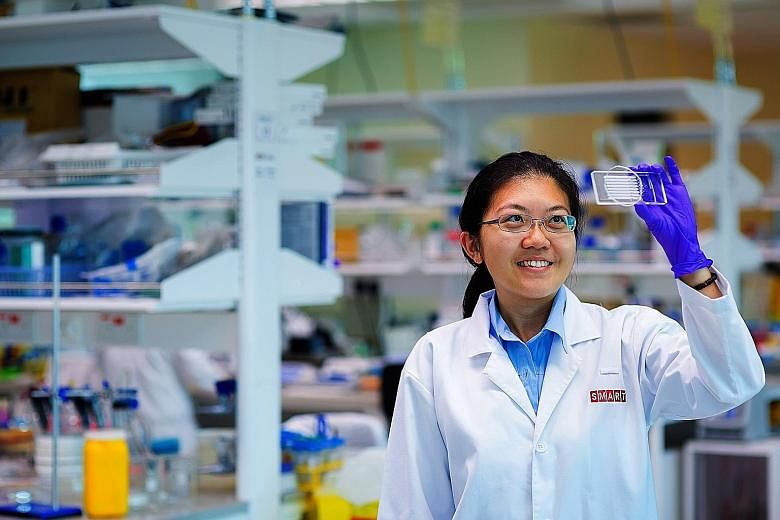A new technology developed by Singapore scientists could potentially tell doctors how well patients are responding to cancer treatment.
Instead of looking at tumours, a team of scientists at the Singapore-MIT Alliance for Research and Technology (Smart) and Mechanobiology Institute at the National University of Singapore (NUS) decided to look at circulating tumour cells. These are cells that break off from tumours. As they travel in the bloodstream, they can form tumours in other parts of the body, otherwise known as metastatic tumours.
Though extremely rare - one circulating tumour cell can be found in about one billion blood cells - they can provide useful clues on how well a particular cancer treatment is working for the patient. And so scientists developed a blood-based platform or assay that can culture these tumour cells. Once the blood samples are collected, scientists culture them to see if they form clusters of circulating tumour cells.
"How well a patient responds to treatment correlates with the potential of the patient's sample to form clusters. The presence of clusters suggests that patient response is poor as this could mean the cancer cells are more resistant and growing better," said Dr Khoo Bee Luan, post-doctoral associate from Smart, who is the lead researcher behind the technology.
Currently, doctors use bioimaging scans to monitor tumour growth, and tumour biopsies to gauge a patient's response to treatment. But scans and biopsies may not always be accurate.
This new assay also allows scientists and clinicians to culture cells in just two weeks, which would enable doctors to quickly intervene.
The new method has been validated with blood samples from 55 breast cancer patients. They include those with early-stage, newly diagnosed and advanced breast cancer. Those who were responding well to treatment (mostly chemotherapy) had circulating tumour cells which formed fewer clusters.
While other scientists have cultured circulating tumour cells before, Dr Khoo said their method is believed to be the fastest. Others can take more than six months.
Associate Professor Lee Soo Chin, who was part of the research team, said that with this technology, there is also the potential to test cancer cells for sensitivity to anti-cancer drugs. "If validated, the test may be used to guide the choice of anti-cancer therapy in patients," said the associate director (research) and senior consultant, department of haematology-oncology, National University Cancer Institute, Singapore.
Find out more about cancer and how to fight it on ST's Fighting Cancer microsite.


